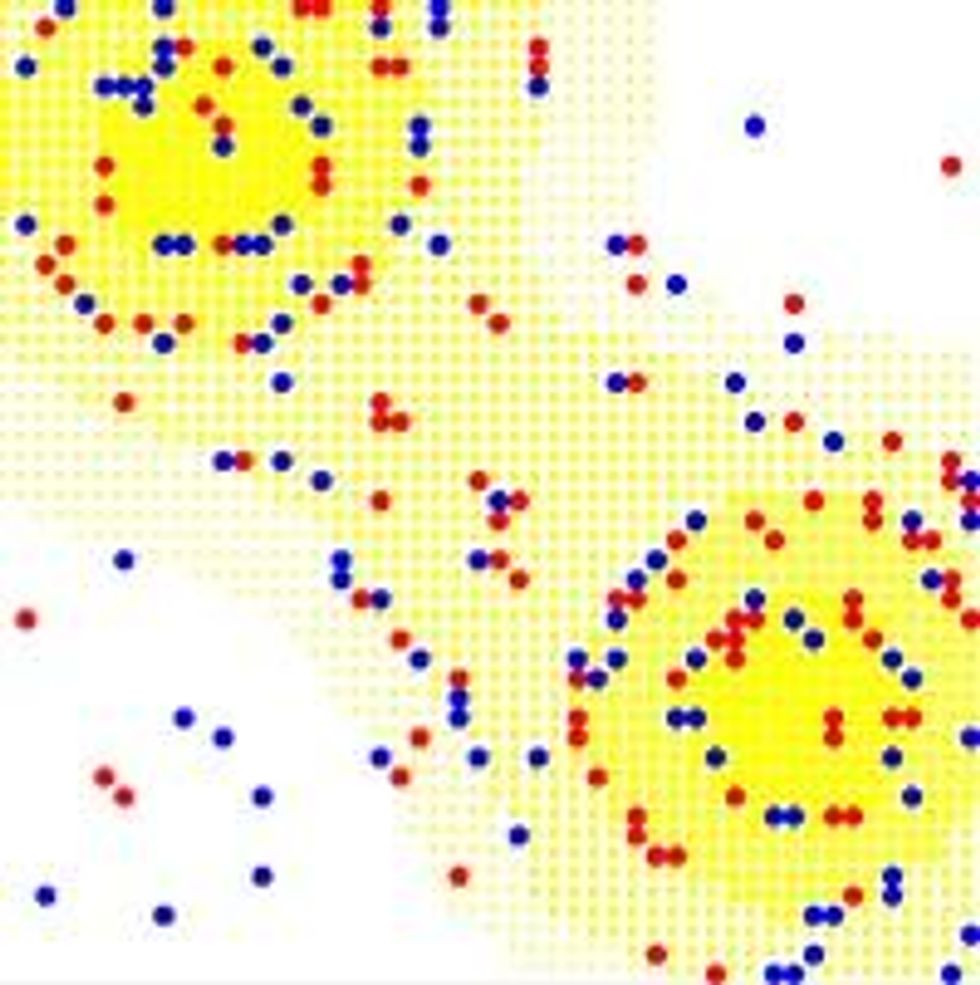Republicans seem to have adopted the position that humans act always and only according to cold calculations of how to maximize their personal rewards and minimize their personal costs.
This economic theory, called Homo economicus, conceives of humans as maximizing individuals - knowledgeable, rational and selfish. It postulates that each person desires only his own profit and pleasure, always knows enough to determine his own best interest, and always reasons or calculates his benefit before acting, and that these individual decisions account for all social and economic organization - both societies and markets.
Critics have pointed out that real people do a lot of things a true Homo economicus would never do. Homo economicus would reason that it is pointless to vote, except against policies or politicians who threaten his personal rights or private gain, would see no reason to return a lost wallet, would never leave tips, volunteer to help neighbors, or serve their nation in the armed forces.
It's pretty obvious that people don't always and exclusively act in their own self-interest. Indeed, if they did we would have no families, no churches, no schools or governments, and probably no civilization at all.
Growing Artificial Societies: Social Science from the Bottom Up, Epstein & Axtell,1996, explores the premise that all social and economic organization - and the "invisible hand" that regulates markets - is based on individuals acting rationally for self-interest and asks the question, "Does the microworld of individual behaviors really add up to the macroworld of economics?"
The first Sugarscape was a landscape (computer screen) with little "agents" (red dots) and piles of sugar (yellow dots). The agents had behavioral rules about how they could move, and were given internal states: their "preference" was to find sugar and consume it. Those who found sugar "lived"; those who didn't, "died".
Then the researchers tinkered with other parameters, changing the landscape and the rules. They added "spice" or other resources, tweaked agents' self-interests, knowledge, reasoning, preferences and abilities, allowing some to "see" sugar many pixels away (the nearsighted died sooner). They introduced reproduction, inheritance, different metabolisms, altruism, tribe-forming and other choices and behaviors, including some that might be called "emotions".
Sugarscape is a research tool that has raised more questions than it answered. The little agents living in simulated landscapes can act rationally, altruistically, knowledgeably, stupidly, or with any other characteristics that can be devised for them. Of course, humans are infinitely more complex and subtle than this, and Sugarscape's managers are properly cautious about drawing conclusions.
No such caution informs the proponents of the Homo economicus model among the Right-wing and TEA-Party crowd. They assume all Americans are determined to maximize their self-interest, and that each person has perfect knowledge and will make perfectly rational choices about what actions he should take.
The GOP presidential candidate apparently believes that the self-interest of individual Americans in low gasoline prices overrides any "sentimental" concern for clean air or global warming. Republican proposals to cut taxes, end Medicare and privatize Social Security are based on the assumption that Americans value money in their private pockets more than they care about their neighbors.
Another favorite conclusion of the self-interest model is that gun ownership and carrying a weapon assures a peaceful society. It assumes that any perfectly rational person knows that any other person may have a gun and might intend to shoot someone, and therefore the only way to prevent gun violence is for everyone to carry a gun.
The corrosive aspect of this is the internalization of the assumption that the other guy intends to shoot me, can't be trusted not to shoot me, unless I can shoot him back. It is total denial of one our most basic social traits, trust in one another.
An interesting variant of Sugarscape was a landscape of mixed red and blue agents with preferences about whether their neighbors should be of their same color, and the ability to migrate freely to maximize their comfort. When 25% of the agents "preferred" having neighbors of their own color, the screen quickly segregated into two large blobs, red and blue, with only a few stragglers: racism.
And that racism, combined with assumptions about guns have brought us the Trayvon Martin tragedy.
Between the Procrustean bed of a rigid, narrow theory that all societies and economies arise from selfish calculated individual choices, and the imaginary societies of dots on a computer screen is a real world of real people - wonderfully complex creatures of process, capable of love, trust, compassion, grief, jokes, friendship, loyalty, justice, invention, and imagination, as well as anger, fear, hatred, distrust, selfishness, dishonesty, disdain and greed.
Are we capable of dealing with the spread of fear, distrust and gun violence when politicians appeal to our worst attributes, and money controls our political processes?
If 25% of us believe that building the XL pipeline or drilling for domestic oil will lower our gas prices at the pump, will we elect Mitt Romney?
Will real human values prevail, or is it already too late?
This column appears in the Kent- Ravenna Record-Courier Sunday April 22, 2012.



